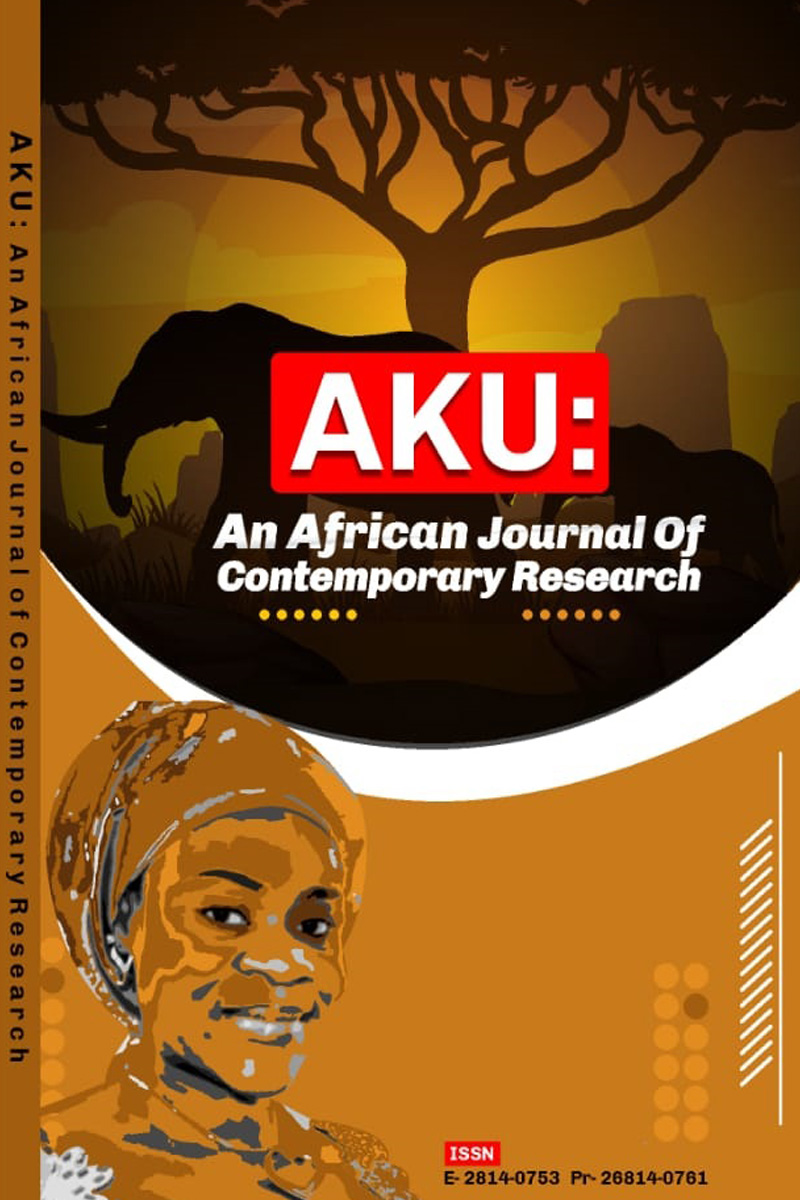 AKU - An African Journal of Contemporary Research (AAJCR) (Vol. 4 No. 4, 2023)
FORGIVENESS AND RECONCILIATION AS STRATEGY FOR PROMOTING CHRISTIAN-MUSLIM RELATIONS: AN APPRAISAL OF DOGO NAHAWA MASSACRE IN POST CONFLICT SITUATION
AKU - An African Journal of Contemporary Research (AAJCR) (Vol. 4 No. 4, 2023)
FORGIVENESS AND RECONCILIATION AS STRATEGY FOR PROMOTING CHRISTIAN-MUSLIM RELATIONS: AN APPRAISAL OF DOGO NAHAWA MASSACRE IN POST CONFLICT SITUATION
ABSTRACT
This paper examines the aftermath of an act of community cleansing at Dogo Nahawa of Barkin Ladi Local Government Area of Plateau State and the recent trend of the escalating explosion of anger and bitterness exhibited by some of thesurvivors. In an effort to underscore the underlying factors that causes the regret and bitterness among survivorsof the cleansing, the paper seeks to consider a strategy for a healthier healing and forgiveness. The paper observes that the massacre of March 7th 2010 which led to killing of over 500 members of the community has had lingering wounds of the heart among survivors. The paper considered how the people of Dogo Nahawa think about and make use of forgiveness in their lives? It also considered if religious beliefs promote forgiveness, and if so, how. This paper affirms that community cleansing and ethno-religious conflicts have affected mutual relations among Christian and Muslims and have brought untold hardship among survivorsespecially in Dogo Nahawa community. Thus, this paper argues that forgiveness and reconciliation can contribute to the emerging relationally based theory of Christian-Muslim relations in post-conflict situation. It understands forgiveness as a process of moving from ill will to goodwill toward offenders, and as compatible with various forms of justice. Forgiveness is often the basis of reconciliation, the restoration of right relationship. Both of these depend in some ways on the acknowledgment of truth. Forgiveness and reconciliation play a vital role in efforts to promote mutual relations among Christians and Muslims with restorative justice, which seeks to address harms suffered by victims, wider communities, and even perpetrators. This paper further argues that an ethic of forgiveness can support the political and social goals of reconciliation and restorative justice for the promotion of Christian-Muslim relations in Northern Nigeria and Africa at large. Through qualitative analysis of in-depth interviews with survivors of the attack in Dogo Nahawa community numbering twenty people, data were collected. Consideration was given to the ways the people think about forgiveness and make use of forgiveness to deal with hurtful experiences, which befell them. Results indicated that for all participants their motivations and strategies to forgive reconcile could be classified as both secular and sacred. The results also highlight the implication and benefits of forgiveness to the community.

